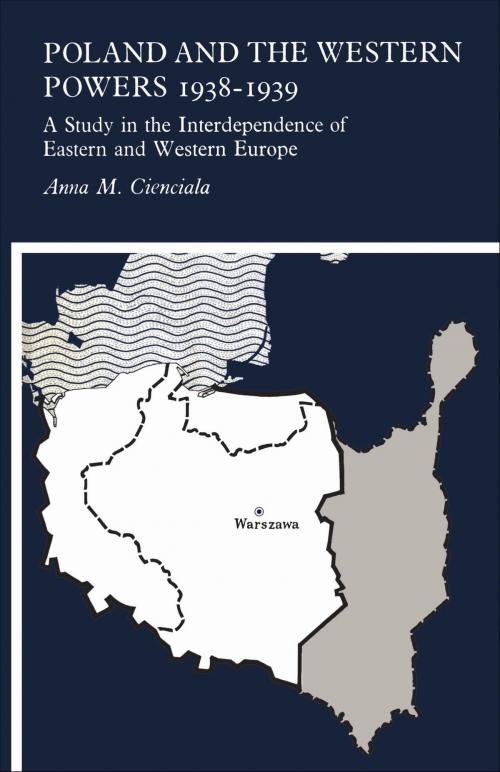Poland and the Western Powers 1938-1938
A Study in the Interdependence of Eastern and Western Europe
Nonfiction, History, Eastern Europe, Western Europe, Social & Cultural Studies, Political Science, International| Author: | Anna M. Cienciala | ISBN: | 9781442654716 |
| Publisher: | University of Toronto Press, Scholarly Publishing Division | Publication: | December 15, 1968 |
| Imprint: | Language: | English |
| Author: | Anna M. Cienciala |
| ISBN: | 9781442654716 |
| Publisher: | University of Toronto Press, Scholarly Publishing Division |
| Publication: | December 15, 1968 |
| Imprint: | |
| Language: | English |
This study has two objectives. The first is to explain the nature and historical roots of the problems facing Polish foreign policy in 1938–39 and the manner in which they were approached by the men who shaped and directed Polish diplomacy. The second is to illustrate the political interdependence in these years of Eastern and Western Europe. This interdependence hinged on the German problem. The attitude of France and Britain towards Poland and Eastern Europe as a whole was primarily a reflection of their policy towards Germany; at the same time, this policy was the decisive factor in the individual reactions of Germany's eastern neighbours to the threat of resurgent German power.
As far as Poland was concerned, she not only had to strive to avert the danger of German revisionism, the realization of which would have made her a vassal of Berlin, but she also had to consider the possibility of Soviet expansion at her expense. This study is, however, primarily concerned with Polish attempts to obtain security with regard to Germany and, in the period in question, this was the main objective of Polish diplomacy.
This study has two objectives. The first is to explain the nature and historical roots of the problems facing Polish foreign policy in 1938–39 and the manner in which they were approached by the men who shaped and directed Polish diplomacy. The second is to illustrate the political interdependence in these years of Eastern and Western Europe. This interdependence hinged on the German problem. The attitude of France and Britain towards Poland and Eastern Europe as a whole was primarily a reflection of their policy towards Germany; at the same time, this policy was the decisive factor in the individual reactions of Germany's eastern neighbours to the threat of resurgent German power.
As far as Poland was concerned, she not only had to strive to avert the danger of German revisionism, the realization of which would have made her a vassal of Berlin, but she also had to consider the possibility of Soviet expansion at her expense. This study is, however, primarily concerned with Polish attempts to obtain security with regard to Germany and, in the period in question, this was the main objective of Polish diplomacy.















